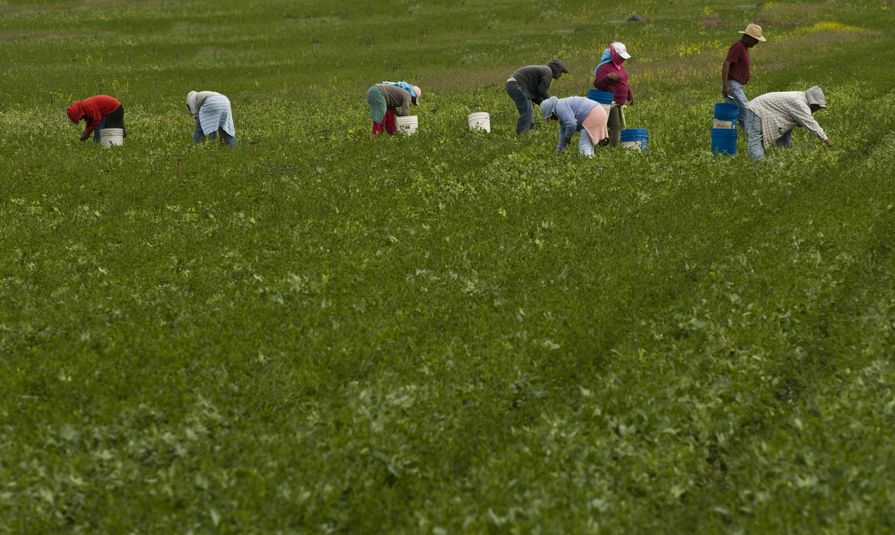
There is an insufficient volume of UK nationals willing and able to fill the low-skill roles currently done by EU nationals, according to a new report.
The analysis, by the Recruitment and Employment Confederation (REC), explained that changing recruitment strategies and automation won’t be able to compensate for this.
Although EU nationals make up 7 per cent of the UK labour market, overall they account for 15 per cent of workers in low-skilled roles, such as crop picking.
Each year farms rely on tens of thousands of temporary workers, with some 80,000 of these workers currently coming from outside the UK.
Both growers and food product manufacturers further down the supply chain are concerned about produce potentially being left unharvested due to a lack of workers.
Recruiters warn that it will be impossible to replace EU workers with British substitutes due to current high employment levels.
They fear that British jobseekers will be overqualified to perform low-skill roles, while others will be unable to do physically demanding roles because of pre-existing conditions.
Employers also warn against over-estimating the extent to which automation is a solution to reduced access to EU labour. However, the farming industry is still aiming to identify technologies that can help reduce labour costs and pressures for businesses which will become "more critical" as the UK leaves the EU, according to the AHDB.
Seasonal workers scheme
The REC is recommending that there should be no blanket salary threshold for EU migrants wishing to work in the UK after the UK leaves the EU.
The group recommends provisions for both temporary workers, and a seasonal workers scheme, must be included in any new immigration system.
Earlier this year, farmers and rural businesses received a boost from MPs who backed a call to reintroduce the workers scheme for migrants to continue working in roles vital to the rural economy.
The analysis urges employers must be allowed to recruit from the EU for any role that cannot be filled domestically.
REC chief executive Kevin Green says: “Low-skilled work is too often talked about as if it’s not vital to our economy, but we need people to pick fruit and veg, sort and pack deliveries to supermarkets, and to cook and serve food once it reaches hotels, school canteens, and restaurants.
“Employers in these sectors are already talking about downscaling, closing or moving operations overseas if they can’t get people to fill jobs post-Brexit.
“The government needs to engage with business and ensure that any new immigration system is agile, pragmatic and based on a proper understanding of labour market data.”
